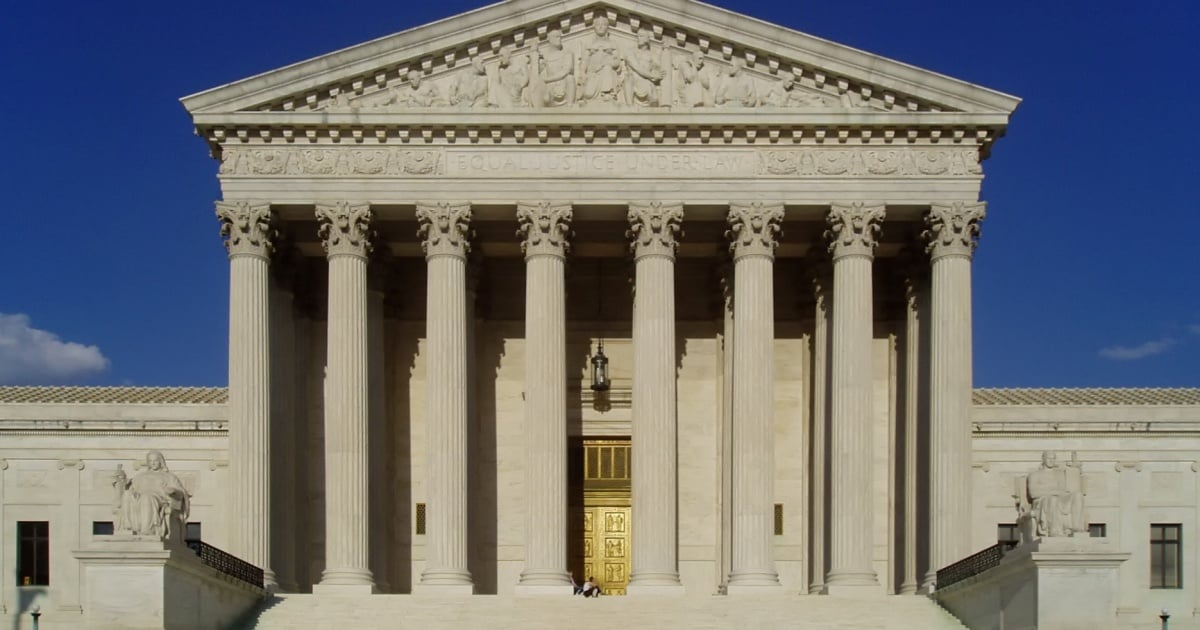The U.S. Supreme Court has given the green light for the deportation of several immigrants, including two Cubans, to South Sudan, a nation ravaged by conflict where none of the deportees have familial or historical ties. This ruling comes amidst a tightening of immigration policies under President Donald Trump's administration, as reported by the Associated Press.
The conservative-majority court overturned a previous ruling by federal judge Brian Murphy, who had permitted these immigrants to challenge their deportation to third countries on the grounds of potential torture or imprisonment. This decision had temporarily halted a deportation flight in May, which was redirected to a naval base in Djibouti. The eight immigrants involved, all with criminal records, have remained in precarious conditions inside a modified container since then, according to AP.
With the Supreme Court's order lifting this suspension, the flight to South Sudan is now permitted to proceed, despite warnings that the deportees might face "immediate detention, torture, or even death" upon arrival, as highlighted by Trina Realmuto, Executive Director of the National Immigration Litigation Alliance.
Tricia McLaughlin, Deputy Secretary of Homeland Security, hailed the high court's intervention as "a victory for the rule of law, security, and the protection of the American people," AP noted. Likewise, Justice Secretary Pam Bondi criticized Judge Murphy for acting as a "rogue" and stated that the Supreme Court had "rebuked" him.
Among the deportees are at least two Cuban nationals, Enrique Arias-Hierro and José Manuel Rodríguez-Quiñones, both of whom, like the others, have been convicted of serious crimes in the U.S. and are subject to final deportation orders issued by ICE. The decision to send them to a conflict-ridden country without personal connections has been harshly criticized by human rights organizations and legal experts.
Legal and Humanitarian Implications of the Supreme Court Decision
Liberal Justices Sonia Sotomayor and Ketanji Brown Jackson dissented, criticizing the preferential treatment the government receives from the court. "Other litigants have to play by the rules, but the government has the Supreme Court on speed dial," Sotomayor wrote. Justice Elena Kagan also expressed concern about ignoring Judge Murphy's analysis regarding the flight to South Sudan.
This decision underscores the Trump administration's increasing pressure to massively deport undocumented individuals, even if it involves agreements with unsafe transit or recipient countries. The legal precedent set by this ruling could also make it harder for other migrants to challenge similar transfers, even in contexts of violence or persecution.
Accelerated Deportations and the Risk of Torture
According to CNN, the United Nations has classified the situation in South Sudan as critical, due to food insecurity, political instability, and escalating violence. Despite this, Donald Trump's administration has sought to expedite deportations to third countries as an alternative when migrants cannot be repatriated to their home countries.
These practices clash with the United Nations Convention Against Torture, ratified by the U.S. in 1994, which prohibits sending people to countries where there is a real risk of torture. However, the government considers that if it receives "diplomatic assurances" from the receiving country, it can proceed without notifying the affected migrant.
In this case, there is no evidence that such assurances have been issued, which, according to Department of Homeland Security policy, would require informing migrants about their deportation so they can apply for protection due to fear of torture. This procedure, according to lawyers, was not followed.
CNN also documented that the eight men — including the Cubans — remain detained under extreme conditions inside a metal container at a military base in Djibouti. They could be transferred to South Sudan at any moment, under a process questioned by legal and humanitarian organizations.
This recent decision follows a June ruling by the U.S. Supreme Court, which authorized the President to resume deportations of migrants to countries other than their places of origin, overturning a prior judicial order that required the government to provide affected individuals with a meaningful opportunity to explain the risks they would face in those destinations.
In a 6-3 vote, the conservative majority of the Court reversed Judge Brian Murphy's ruling, which in April had blocked these deportations on the grounds that they could lead to torture or death for migrants if sent to third countries. The case involved eight migrants from Myanmar, South Sudan, Cuba, Mexico, Laos, and Vietnam, who were deported last month on a flight to South Sudan.
A month earlier, Trump had requested the U.S. Supreme Court to authorize his administration to deport migrants to countries other than their place of origin, like South Sudan, prompting a wave of criticism from human rights defenders and immigration organizations.
Key Questions on U.S. Supreme Court Deportation Ruling
Why did the U.S. Supreme Court allow deportations to South Sudan?
The court's conservative majority overturned a prior order that allowed immigrants to challenge deportations on grounds of potential torture or imprisonment, aligning with the Trump administration's stricter immigration policies.
What are the conditions like for the deportees in Djibouti?
The deportees, including two Cubans, are being held in extreme conditions inside a modified metal container on a military base in Djibouti.
What are the implications of the Supreme Court's decision?
The decision could set a legal precedent making it harder for other migrants to contest similar deportations, even in cases involving potential violence or persecution.
